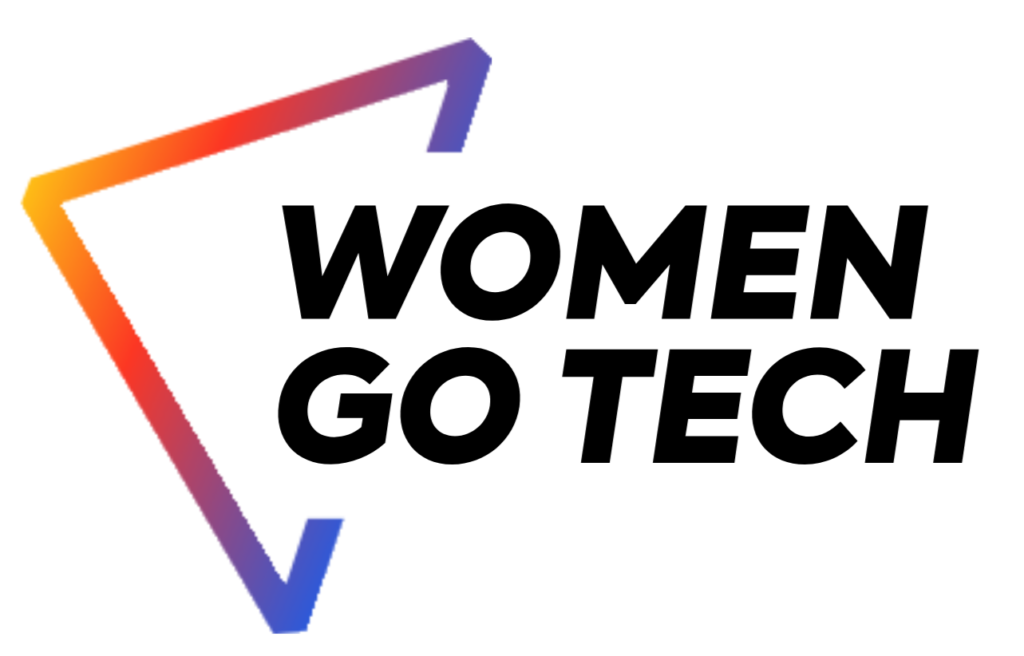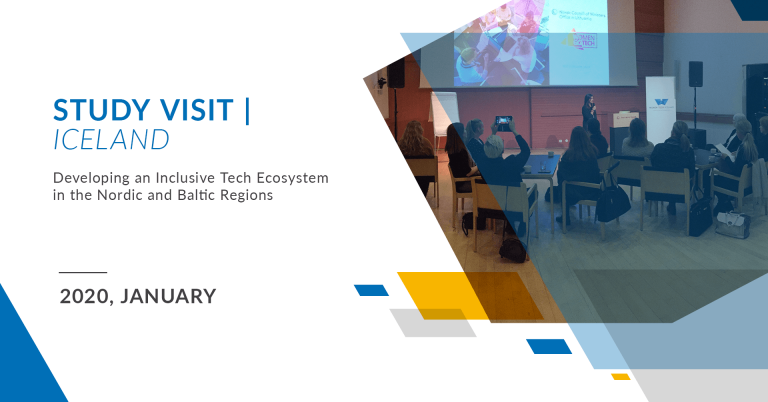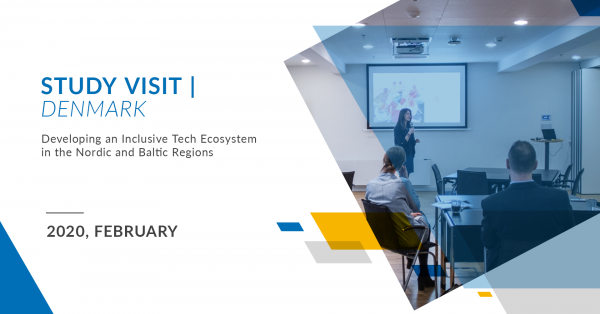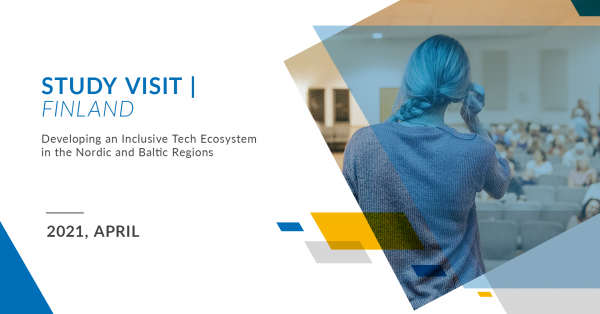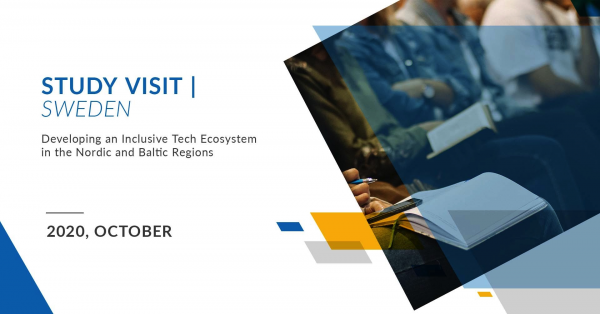Joining the forces across the Nordics
The gender gap in the technology sector is a persistent challenge for the labour market and there is a gender equality issue in the Baltic Sea countries, with too few women choosing careers in the technology sector. A growing range of social initiatives are now being established to try to address this challenge; however, they are often fragmented. As a result, they lack the support or resources needed for collaborations and scale-ups. Therefore, the Women Go Tech mentorship programme, with the support by the Nordic Council of Ministers, has launched a project to identify grass-root social initiatives that are encouraging female participation in tech sector, with the aim to build a partnership network across the Baltic Sea Region. The project will help to share experience and knowledge across different organisations, to showcase good examples and ultimately to scale-up such initiatives within and across countries in the Baltic Sea and Nordic Region.
Report: ICT workforce in Europe and its gender challenge after Covid-19. An overview of good practice solutions, with a focus on the Nordic-Baltic region.

With the growing prevalence of ICT technologies in our everyday life, the digital gender divide is becoming an ever more pertinent issue. This report focuses on one of the key dimensions of the digital gender gap – the ability of women to access the large and growing pool of ICT specialists’ jobs.
The report has been delivered in the context of the project “Developing an inclusive Tech ecosystem in the Nordic and Baltic regions”.
Authors: Mantas Sekmokas and Žydrūnė Vitaitė
2021
About Nordic Council of Ministers

The Nordic Council of Ministers Office in Lithuania was established in 1991 to represent the Nordic Council of Ministers in Lithuania, and to develop Nordic-Lithuanian cooperation. It has four sister offices across the Baltic region: one in Latvia (Riga) and two offices in Estonia (Tallinn/Narva) as well as one in Russia (St Petersburg).
The Nordic Council of Ministers is the official body for Nordic intergovernmental co-operation across the five Nordic countries – Denmark, Finland, Iceland, Norway and Sweden. In practice, the responsibilities are delegated to the Ministers for Nordic Co-operation and to the Nordic Committee for Cooperation, which coordinate the day-to-day work involved in the official political Nordic cooperation. Digital solutions for remote care, the social inclusion of young people, and a labour market policy that offers better opportunities for entering employment are key points in the programme. The Nordic Prime Ministers have the overall responsibility for Nordic cooperation.
Developing an Inclusive Tech Ecosystem in the Nordic and Baltic Regions

The aim of this project is to map the existing good practice initiatives across the Baltic and Nordic Region– in Lithuania, Latvia, Estonia, Finland, Sweden, Denmark, Norway and Iceland. Through cooperation, the project organisers hope to achieve a stronger, as well as a more sustainable impact with regard to gender equality in the technology sector. The project will run until Q4 2021, and will be implemented through collaborations with such initiatives and stakeholders as Riga Tech Girls (Latvia), Tech Sisters (Estonia), GoGetty (Denmark), Stockholm Startup Weekend (Sweden) and others.
Past events & knowledge-sharing workshops
Please read further about the knowledge-sharing workshops as well as insights and best practises shared during discussions with local partners and stakeholders:
